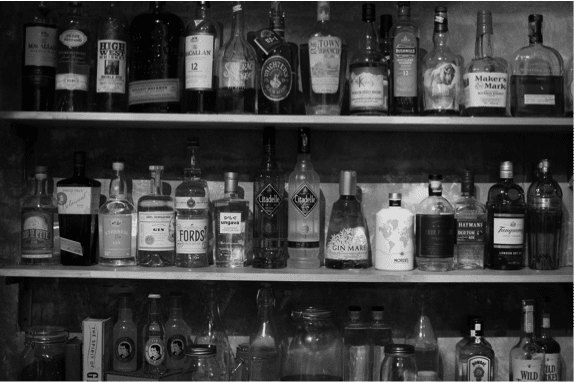Reading labels on various alcohol bottles can be a challenging process, and it looks as though it’s only going to get more difficult in coming years. Last year a federal judge dismissed several claims against Tito’s “Handmade” vodka. Now, craft distillers are taking a stand and voicing their opinion on the authenticity of the market and how “craft” may become a loosely defined term.
Alcohol labels can say “Distilled by,” “Bottled in,” “Manufactured in,” “Produced in,” “Aged in,” and so on. But what does it all mean? According to a distillery based in Traverse City, Michigan, if the label says anything other than “Distilled by,” it means the product was not made by the company, at least when you are talking about whiskey.
There appears to be two camps forming in the world of craft alcohol: “producers” and “merchant producers.” Producers are viewed as being actual distilleries, involved in the whole (or almost the whole) process, from grain to bottle. Merchant producers, on the other hand, purchase their alcohol from a large-scale distillery in bulk and sell it under their own labels. These producers have no part in the creation process of the liquor; they merely act as the storefront for the product while outsourcing its production.
What merchant producers are doing is not a bad thing. In fact, many business-savvy people would view this approach as the way of the world today. Merchant producers often even sell a good-tasting and quality product. The problem arises from how they choose to label their products and the high risk associated with misleading consumers.
Take the case of Tito’s “handmade” vodka. The judge held that one simply cannot “hand make” vodka, or, at least, not in the volume needed to fill a national market. This was viewed by the judge as a fact that should be obvious to the general consumer and, therefore, isn’t misleading. In this particular case, though, a connection was drawn between the term “handmade” and the concept that the vodka is made “in an old fashioned pot still.” This portion of the case was not dismissed by the judge and is allowed to move forward to trial. If Tito’s vodka is not made “in an old fashioned pot still,” the labeling would be considered misleading. This finding could prove detrimental to the brand.
Most authentic distillers recognize that consistency and authenticity in labeling is going to be an uphill battle. Their hope is that in the coming years consumers will come to recognize and distinguish products based on the difference in taste and this will create the divide between authenticity and merchant producers. In the meantime, distilleries will continue to produce in hope that with time, either the merchant producers will change their labeling methods, or that consumers will come to recognize and understand the difference.
For more information about alcohol advertising contact Revision Legal’s Corporate attorneys through the form on this page or by calling 855-473-8474.





